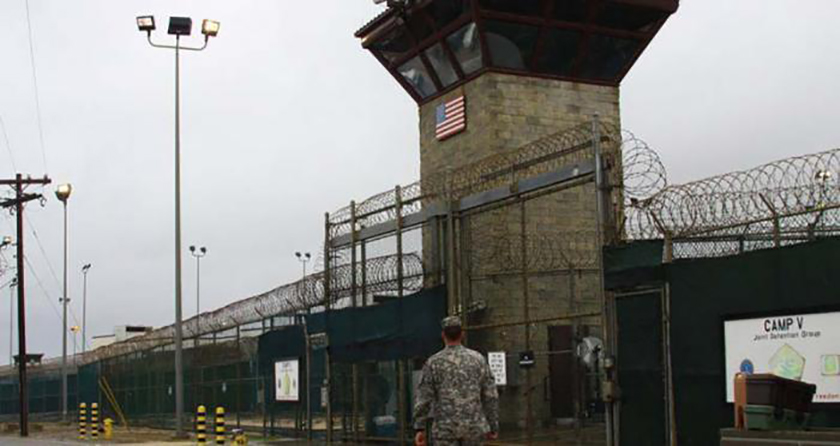
HAVANA, Feb 25 (NNN-ACN) — Miguel Diaz-Canel, first secretary of the Central Committee of the Communist Party of Cuba and president of the country, said that the permanence of the U.S. Naval Base in Guantanamo, against the will of the people, is a theft of national sovereignty.
On Twitter, the president recalled that 120 years ago a treaty was signed that allowed the United States to establish the military site in eastern Cuba, the first naval base installed by the government of the northern nation outside its borders.
The head of state affirmed that by its use as a lawless prison, the US base also hurts other nations.
The installation was the result of an Agreement for the Coal and Naval Stations, signed on Feb 23, 1903 between the governments of the United States and Cuba, in circumstances in which the latter had practically no independence, due to the imposition of the Platt Amendment (1901).
With a 117.6 square kilometers area of Cuba’s national territory, the Guantanamo Naval Base began operations in December 1903 and was, in the first half of the 20th century, the training and preparation scenario for the US fleet.
After the triumph of the Revolution (1959), the enclave became a platform for permanent aggression against the country, through the support of counterrevolutionary organizations and Central Intelligence Agency (CIA) networks, which received from there all the necessary material support.
As of 2002, a detention center for prisoners accused of terrorism was established, which in 2003 already housed 700 inmates, most of them detained in Afghanistan during the US invasion.
According to United Nations human rights experts, there are ongoing and relentless violations of the fundamental rights of detainees and since its opening and until 2021, nine detainees have died in custody there, two of natural causes and, according to reports, seven have committed suicide.
Feb 23 is the International Day of Struggle against foreign military bases of the United States and NATO, instituted five years ago in Dublin, Ireland.
Meanwhile, several actions to denounce the presence of foreign military bases took place in Guantanamo on the Day of Action against the enclaves of the United States and the North Atlantic Treaty Organization (NATO).
Ana Teresa Napoles Disotuar, president of the Cuban Friendship Institute (ICAP by its Spanish acronym) in the eastern province, told the Cuban News Agency that the event coincides with the 120th anniversary of the signing of the agreement that made official, on February 23, 1903, the illegal U.S. naval base on Guantanamo’s territory.
In Caimanera, bordering the Yankee enclave that usurps 117.6 square kilometers of Cuba’s national territory, a panel organized by the Municipal University Center and ICAP will be held, in which experiences on the negative impacts of the base on the inhabitants of the marine town will be presented.
The realization of military exercises that affect the tranquility of the people, the impossibility to enjoy the beaches located in Guantanamo Bay and the affectation of fishing, are other of the innumerable problems caused by the presence of the base, she said.
Napoles Disotuar also referred to the participation in the virtual day of denunciation of the foreign military bases, with a ” Tweet” starting at 9:00 a.m. to demand the return of that portion of land where, against the will of the Cuban people and government, the oldest facility that the United States has outside the country is located.
She pointed out that with this initiative ICAP joins the call of the World Peace Council, which every year promotes the realization of different actions worldwide to express the strong international rejection against military bases on foreign soil.
Currently, the United States has more than 800 military bases in more than 100 countries around the world, 76 of which remain in the Latin American region. — NNN-ACN





